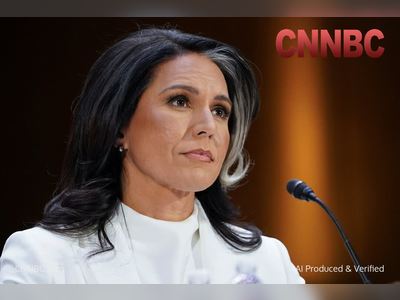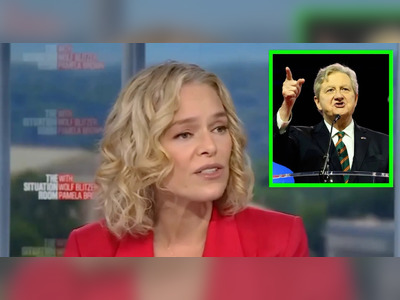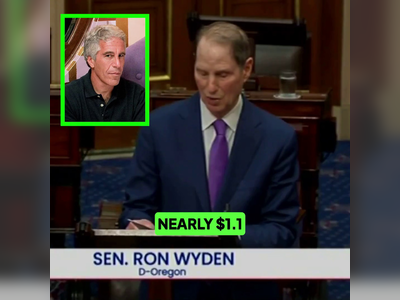U.S. Congress Approves Rescissions Act Cutting Federal Funding for NPR and PBS
Legislation eliminates $1.1 billion for public broadcasting and $7.9 billion in foreign aid after narrow House and Senate votes
Federal funding for public broadcasting in the United States is set to end following the passage of the Rescissions Act of 2025, which was backed by President Donald Trump and advanced through narrow votes in both chambers of Congress.
The act, introduced as H.R. 4 in the House, rescinds $9 billion in previously approved federal expenditures—approximately $1.1 billion for the Corporation for Public Broadcasting (CPB), which funds National Public Radio (NPR) and the Public Broadcasting Service (PBS), alongside $7.9 billion in foreign aid programs for fiscal years 2026 and 2027 .
The House of Representatives first approved the bill on June 12, 2025, by a vote of 214–212, largely along party lines, with four Republicans joining Democrats in opposition .
Following Senate amendment preserving some global health funding, the Senate passed the revised version 51–48 on July 17, with Republican Senators Susan Collins and Lisa Murkowski joining Democrats in opposition .
The amended legislation was then approved again by the House on July 18 by a margin of 216–213 .
The cuts to CPB funding represent the complete elimination of federal support for public media beginning in fiscal 2026.
Under the act, NPR, PBS and more than 1,400 local stations will no longer receive allocations previously authorized for two years .
CPB distributes over 70 percent of its federal funding to more than 1,400 locally owned public radio and television stations.
PBS member stations receive around 15 percent of their financing from the CPB, while NPR receives approximately 1 percent directly and about 36 percent of their programming budget comes indirectly from member stations supported by CPB funding .
Rural outlets often derive at least a quarter of their revenue from CPB grants; for some, this figure exceeds 50 percent .
Public broadcasting executives and station leaders have warned of looming operational disruptions and closures, particularly among smaller and rural organisations.
They cite the crucial role of public media in delivering emergency alerts, local journalism, children’s and educational programming .
NPR’s chief executive, Katherine Maher, stated that "public radio is a lifeline, connecting rural communities to the rest of the nation and providing lifesaving emergency broadcasting and weather alerts" .
President Trump issued Executive Order 14290 on May 1, 2025, instructing the CPB and federal agencies to end funding for NPR and PBS, citing alleged bias and asserting that taxpayer-supported news undermined journalistic independence .
The CPB responded that it is a private, non-profit corporation, and not subject to executive authority, and initiated legal action challenging both the funding cuts and board dismissals earlier in the term .
Supporters of the act have described it as a necessary fiscal measure.
Senate Majority Leader John Thune described it as a "small but important step toward fiscal sanity" , while the Office of Management and Budget highlighted the removal of funding from projects including international aid in areas such as Colombia, the Western Balkans and Nepal .
Opposition voices, including moderate Republicans, have described the move as detrimental to underserved communities and essential services.
Senators Collins and Murkowski cautioned that rural and remote residents depend on public broadcasting for life-saving alerts and local reporting .
Advocacy groups have warned that up to 80 public radio stations could close within a year without federal support .
The act represents the first successful rescissions package in over two decades, allowing the White House to revoke appropriations previously authorised by Congress .
It will take effect from October 1, 2025, at the start of the fiscal year.
The act, introduced as H.R. 4 in the House, rescinds $9 billion in previously approved federal expenditures—approximately $1.1 billion for the Corporation for Public Broadcasting (CPB), which funds National Public Radio (NPR) and the Public Broadcasting Service (PBS), alongside $7.9 billion in foreign aid programs for fiscal years 2026 and 2027 .
The House of Representatives first approved the bill on June 12, 2025, by a vote of 214–212, largely along party lines, with four Republicans joining Democrats in opposition .
Following Senate amendment preserving some global health funding, the Senate passed the revised version 51–48 on July 17, with Republican Senators Susan Collins and Lisa Murkowski joining Democrats in opposition .
The amended legislation was then approved again by the House on July 18 by a margin of 216–213 .
The cuts to CPB funding represent the complete elimination of federal support for public media beginning in fiscal 2026.
Under the act, NPR, PBS and more than 1,400 local stations will no longer receive allocations previously authorized for two years .
CPB distributes over 70 percent of its federal funding to more than 1,400 locally owned public radio and television stations.
PBS member stations receive around 15 percent of their financing from the CPB, while NPR receives approximately 1 percent directly and about 36 percent of their programming budget comes indirectly from member stations supported by CPB funding .
Rural outlets often derive at least a quarter of their revenue from CPB grants; for some, this figure exceeds 50 percent .
Public broadcasting executives and station leaders have warned of looming operational disruptions and closures, particularly among smaller and rural organisations.
They cite the crucial role of public media in delivering emergency alerts, local journalism, children’s and educational programming .
NPR’s chief executive, Katherine Maher, stated that "public radio is a lifeline, connecting rural communities to the rest of the nation and providing lifesaving emergency broadcasting and weather alerts" .
President Trump issued Executive Order 14290 on May 1, 2025, instructing the CPB and federal agencies to end funding for NPR and PBS, citing alleged bias and asserting that taxpayer-supported news undermined journalistic independence .
The CPB responded that it is a private, non-profit corporation, and not subject to executive authority, and initiated legal action challenging both the funding cuts and board dismissals earlier in the term .
Supporters of the act have described it as a necessary fiscal measure.
Senate Majority Leader John Thune described it as a "small but important step toward fiscal sanity" , while the Office of Management and Budget highlighted the removal of funding from projects including international aid in areas such as Colombia, the Western Balkans and Nepal .
Opposition voices, including moderate Republicans, have described the move as detrimental to underserved communities and essential services.
Senators Collins and Murkowski cautioned that rural and remote residents depend on public broadcasting for life-saving alerts and local reporting .
Advocacy groups have warned that up to 80 public radio stations could close within a year without federal support .
The act represents the first successful rescissions package in over two decades, allowing the White House to revoke appropriations previously authorised by Congress .
It will take effect from October 1, 2025, at the start of the fiscal year.











